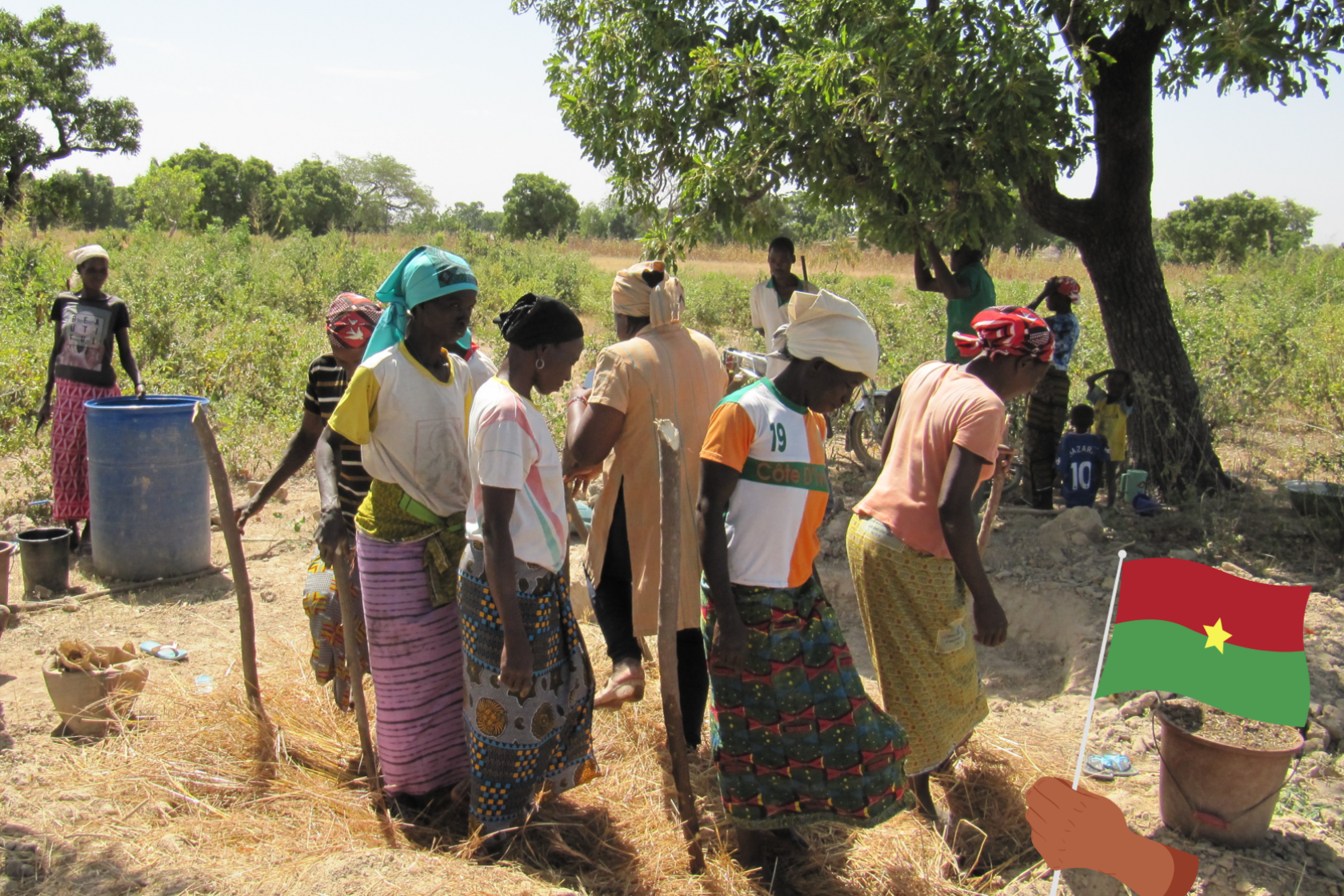Mijlpaal: agro-ecologisch actieplan in de maak in Burkina Faso
A milestone for our mission: a national strategy has been agreed in the Burkinabe capital Ouagadougou to use agroecology as an agricultural model. Together with numerous NGOs and civil society organisations, we took part in the preparatory workshops that led to this strategy.

Agroecology is the use of ecological principles for a sustainable agricultural model. At the UN Food Summit in September 2021, Burkina Faso committed to applying agroecological methods to at least 30% of their seeding area by 2040. In order to achieve this, a national strategy and action plan for the development of agroecology in Burkina Faso was elaborated.
With the aim of realizing final versions of the strategy, the Direction générale des productions végétales (Directorate General of Plant Production) and the Franco-European PACTE organized a national consultation in the Burkinabe capital on April 28, 2022. Delegates from the Ministries of Agriculture, Environment and Higher Education took part in the consultation. Numerous national and international research institutes and professional agricultural organizations were also present.
In his opening speech, Moussa Ouattara, head of research at the Ministry of Agriculture, said that agriculture is the mainstay of the economy in Burkina Faso, but that its potential is underutilized. This is partly due to climate change (resulting in increasingly longer dry seasons and failed harvests), the degradation of soil, a shortage of water and the decline in biodiversity.
Dr. Mohamed Porgo, representative of the Directorate for the Promotion of Rural Economy (DGPER) commented that sustainable farming practices are a response to the climate challenge and that a national strategy is needed to curb the price spikes of water imports. More generally, sustainable and local production systems are necessary as a buffer against price fluctuations in the international market.
Furthermore, according to the DGPER, the national pesticide use poses a threat to the quality of the Burkinabe food. dr. Porgo: “In the agro-ecological transition, we also need to develop strategies that maximize the impact of pesticides on the productive system.” Finally, Dr Porgo emphasized that the transition will be a lengthy process that requires a combined effort.
The Burkinabe state, the Agence française de développement (French development agency and co-organizer of the consultations) and the Kreditanstalt für Wiederaufbau (German bank for development aid) seem aware of this. They have united to support the Burkinabe Ministry of Agriculture and, within the framework of PACTE, to focus on contract farming, agro-ecological intensification and the professionalization of the actors involved. In contract farming, the prices of the production and its customers are contractually determined.
Anne Ceillier, spokesperson for PACTE, spoke to the press: “We stand with the Ministry of Agriculture to support sustainable agricultural production in Burkina Faso, a system that takes into account a number of challenges including climate change that is already visible on the terrain. The country suffers from food insecurity and must operate resilient production systems to meet the needs of the entire population.” For her, agroecology is a necessity.
This text is based on an article by Aïssata Laure G. Sidibé for Lefaso.ne.